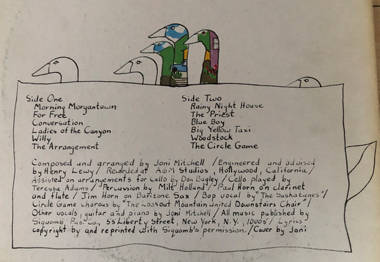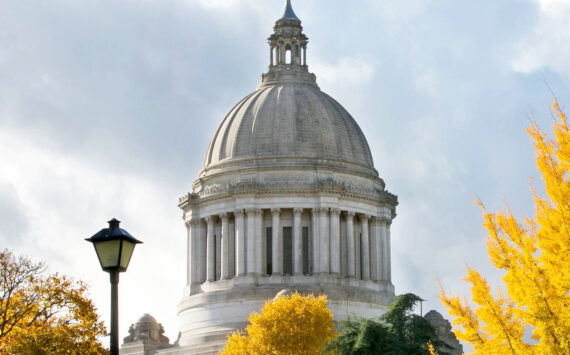By Morf Morford
Tacoma Daily Index
You don’t know what you’ve got ‘til it’s gone.
– Big Yellow Taxi by Joni Mitchell
Sometimes a simple phrase sums up an era, or the span of an individual’s life – or even the unexplainable vagaries, accomplishments and losses of humanity itself.
What story is more poignant than the discovery that what you most loved is not only gone, but not fully known or appreciated until it is gone?
Another way of saying this is that we don’t really see something until we don’t see it – its power and meaning, its place in our lives, isn’t noticed until we no longer have it.
As individuals, we probably feel this most strongly about our parents; they are literally there (for most of us) our whole lives, and then they are not. And, again for most of us, we don’t realize how much we need them until they are gone.
It’s a strange balance; we have relationships or jobs or even neighborhoods, and then things change – people die or move away, old jobs are left behind and communities and neighborhoods change.
A popular novel many years ago was “You Can’t go home again” by Thomas Wolfe. The premise is a simple as it is profound; once we leave, or grow up, the place we grew up in, the people we knew, the person we were, is never the same.
What we had, what we knew, who and what we cared about is long gone.
It seems to be one of those universal – and inescapable – principles: those annoying neighbors or siblings, those childhood friends that you had nothing in common with except proximity and age, that crummy first job, that clumsy first love, they were all the more formative, if not definitive, precisely because of their awkwardness and their everyday, unappreciated, maybe even accidental existence.
If we return, it is never the same, never as good. It has changed and we have changed. We have become different, and the place itself has changed, or in the rare case that it has not changed, our place in it has changed so dramatically that we barely recognize it. Places are smaller, plainer or somehow just different from how we remember them.
And the strangest things evoke powerful memories and sensations. The smell of a long dead relative’s flower garden or baked goods, or perfume brings it all back.
For me, for example, the musty smell of leaves in the fall reminds me of getting back to school.
The passing obsessions and controversies that seemed so important, those things we worried about or argued over will pass like a morning sunbeam, but some things will prevail, some elements and rituals of the natural world will sustain, continue and, unlike the human mark upon the world, will carry its will out on the earth forever.
All things belonging to the earth will never change—the leaf, the blade, the flower, the wind that cries and sleeps and wakes again, the trees whose stiff arms clash and tremble in the dark, and the dust of lovers long since buried in the earth—all things proceeding from the earth to seasons, all things that lapse and change and come again upon the earth—these things will always be the same, for they come up from the earth that never changes, they go back into the earth that lasts forever. Only the earth endures, but it endures forever.
The tarantula, the adder, and the asp will also never change. Pain and death will always be the same. But under the pavements trembling like a pulse, under the buildings trembling like a cry, under the waste of time, under the hoof of the beast above the broken bones of cities, there will be something growing like a flower, something bursting from the earth again, forever deathless, faithful, coming into life again like April.
-Thomas Wolfe, “You Can’t Go Home Again”
2020 was a year of losses. We will be tallying those losses for years.
In Los Angeles, for example, a third of all restaurants were expected to close permanently. That’s a lot of jobs, dollars, taxes and dreams.
And Los Angeles is not unique. And the food service industry is not alone.
I hear endless conversations about going “back to normal”.
I have bad news for you – “normal” will not be waiting for us.
We won’t be going back “home” to “normal” again.
We will rebuild, reframe and re-unite.
But we won’t “go back”.
We might go back to the same places, or even the same jobs (not likely for many of us), but we won’t be the same, our goals and relationships won’t be the same, and perhaps most of all, our attitudes and values will, in ways it will take us years to comprehend, be very, very different.
Yes, “You don’t know what you’ve got ‘til it’s gone” reminds us, or calls us to appreciate what we have before we lose it, but it also reminds us that, once it’s gone, it is truly gone. It won’t come back and it won’t be waiting for us like a mythical dream.
The only way we can go is forward. And the only way forward is through.
Many people I’ve talked to lately don’t want to go “back” to the way things were.
From work to driving too much, to spending too much, to accumulating too much, to being too busy or spending too much time staring at screens, just about everyone I know wants their next version of “normal” to be very different.
And that too, will become routine and taken for granted, until it too, over time and shifting circumstance, becomes unrecognizable or sacrificed for some other more tantalizing goal.
And once again, “You don’t know what you’ve got ‘til it’s gone”
As Joni Mitchell put it;
They paved paradise
And put up a parking lot
With a pink hotel, a boutique
And a swinging hot spot
Don’t it always seem to go
That you don’t know what you’ve got
‘Til it’s gone
Remind you of any neighborhood in your memory?






